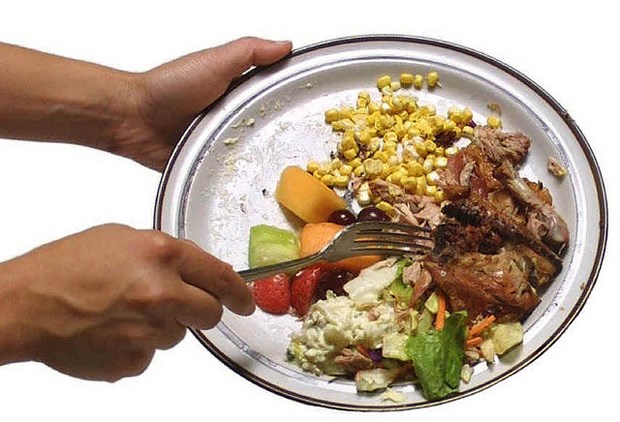Pronounce the word frugal. I’ll bet you didn’t linger over those two syllables. Frugal not only sounds, but also looks, frugal — it’s economical and sparing, in perfect accord with its meaning.
If you look up frugal in a thesaurus or dictionary of synonyms, you’ll find the words stingy and miserly, but they are misleading.
Frugal is not deprecatory; it’s a positive term. It grew out of the Latin “frux”, meaning fruit, also in the transferred senses of profit, value, moral excellence. The Latin adjective “frugi” signified useful, worthy, moderate, profitable.
A more appropriate synonym for frugal is thrifty. Thrift, a Middle English word, is documented in the 17th century with the significance of prosperity and success; nowadays it refers to a careful and unwasteful use of financial and other resources. Its origins are in the Old Norse “thrifa”, to grasp, get hold of.

Related to thrift is another Middle English word, thrive (to grow, increase), which derives from the same “thrifa.”By the 17th century, thrive signified to flourish, prosper.
Common to all these words is the sense of economy, economical. Economy is derived from the Latin “oeconomicus” (household management), which in turn is based on the Greek “oikos” (house) and “nemein”, manage.
In the 15th century the English words were spelled oikonomy and oikonomical (the Germans still spell it “Ökonomie”). Incidentally, another word that comes from the same Greek “oikos” is ecology, a term believed to have been invented by the German biologist, philosopher and artist Ernst Haeckel (1834-1919). Ecology is about the relationship of organisms to one another and to their natural environment (the natural environment being their “oikos,” home).
A further concept that goes hand-in-hand with frugal and economical is efficient, implying unwasteful. Documented as early as the 14th century, when it meant producing immediate effect, efficient can be traced to the Latin “efficere”, to accomplish, work out, based on “ex” (out, thoroughly) and “facere” (to do, make).
By the 18th century, efficient signified skilled, productive, a meaning that’s still current. But as we’ve grown increasingly aware of the fragility and limits of the natural world, we’ve added yet another meaning to efficient — that is, preventing the wasteful use of our resources.
I was recently reminded of this when I saw an advertisement by Farm Folk City Folk in a Choices Markets newsletter. It focused on food waste. I read that annually 1.3 billion tonnes of food produced world-wide is never eaten.
In Canada, an average of 172 kg of food per person is wasted every year; that’s $27 billion thrown out the window. Food waste also accounts for approximately 10 per cent of carbon dioxide emissions in the world.
But it’s within our power to halt this trend. Being efficient means planning more carefully and thoughtfully, no matter how insignificant the activity may seem — such as food shopping, car trips, or running appliances.
In his Philosophical Rudiments, the English philosopher Thomas Hobbes (1588-1679) wrote, “Riches are gotten with industry, and kept by frugality.” A slight rewording, and it becomes more appropriate to our situation today: “Riches gotten from nature are kept by frugality.”



